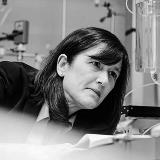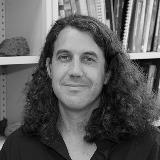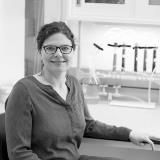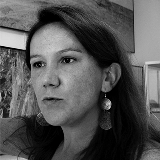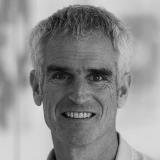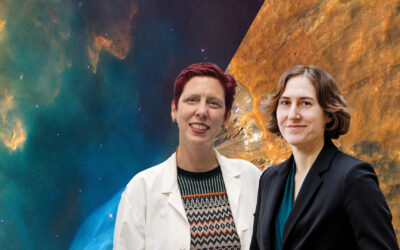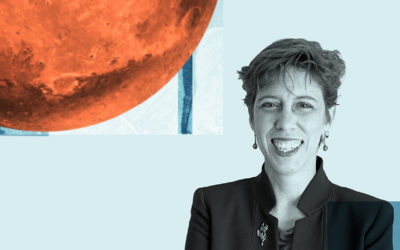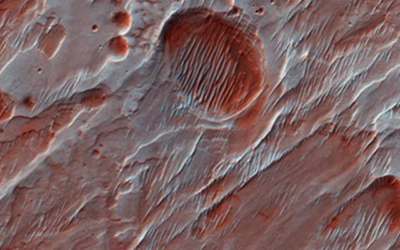Earth 4D: Subsurface Science & Exploration
How do life, water and energy interact between the Earth’s vast subsurface and surface environments?
Beneath our feet is a vast, unexplored world from surface to depths of tens of kilometres containing water, gases, nutrients, resources and various forms of life. The Earth 4D program’s multidisciplinary team draws on geology, chemistry, planetary science and engineering to investigate the interactions between the subsurface and the surface on Earth. They seek to inform and expand our understanding of the interaction of human and all life with Earth’s resources, water cycle, changing climate and the co-evolution of the planet and life, and the implications for planetary exploration and astrobiology.
IMPACT CLUSTERS
The Earth 4D program is part of the following CIFAR Impact Clusters: Exploring Emerging Technologies and Nurturing a Resilient Earth. CIFAR’s research programs are organized into 5 distinct Impact Clusters that address significant global issues and are committed to fostering an environment in which breakthroughs emerge.
RESEARCH AND SOCIETAL IMPACT HIGHLIGHTS
Integrating Earth, Mars and planetary exploration with programmatic vision
Several program members provided important direction and input into the National Academies of Sciences, Engineering, and Medicine’s 800-page report Origins, Worlds, and Life: A Decadal Strategy for Planetary Science and Astrobiology 2023-2032. This planning and policy document sets the 10-year plan and priorities for NASA research and missions based on the most compelling scientific questions in the field for the decade ahead, and influences international science and engineering through partnerships with ESA, CSA, JAXA and other space agencies. This year, workshops on the “New Mars Underground” with the Institute of Space Science Institute (Bern, CH) and with the Keck Space Studies Institute (led by CalTech) on new directions in biosignatures research, are examples of partnerships involving multiple E4D members in defining the impact of science discovery in this area.
New resources critical to the energy transition
E4D focused on expanding its fundamental understanding of the subsurface including novel chemical reactions in the subsurface driving production of helium and hydrogen, often associated with groundwater rich in elements such as lithium critical to the energy future. Recent high-profile work in Science by E4D provided quantitative models for predicting formation of helium-rich reservoirs critical to addressing the planet’s rapidly decreasing helium resources. Another work in Nature Communications provided new insight into how much helium (and hydrogen) diffuses up from the deep Earth. This is a critical step forward as the transition to more sustainable resources like H2 is explored as part of society’s pressing need to achieve net zero. Further directions of exploration include understanding the profound implications of radiogenic subsurface chemistry on groundwater dating, better understanding groundwater resources and proposed deep geologic repositories proposed for carbon, hydrogen or nuclear waste storage, and the role this chemistry plays in supporting novel microbial communities in the subsurface.
New frontiers in subsurface microbiology and carbon and water cycle impacts
E4D continues to apply the core theme of Water, Life, Space (Energy) and Time to explore the biodiversity of the Earth’s subsurface microbiology on both the continents and ocean lithosphere. Team members continue to extend their discoveries to investigate the microbial ecology of subsurface dry permafrost in Antarctica and the Mackenzie River Delta in the Arctic, including expanding vision to include fungal as well as microbial life investigations. This work is not only relevant to the impact of climate change on this critical component of the hydrosphere, but has implications for how we understand life on our planet and how we may search for life in future Mars missions to similar cold and arid regolith soils. Other work focuses on understanding processes such as rapid microbial CO2 conversion to methane during CO2 storage in terrestrial hydrocarbon reservoirs relevant to innovative methods of CO2 capture, storage, conversion and fixation within the oceanic and continental crust.
Grappling with major changes in the water cycle and the surface water-groundwater interaction
E4D works at the forefront of understanding the planet’s water cycle and its intersection with the carbon cycle and all of the planet’s life forms. In areas of environment and energy, E4D has continued to expand its collective thinking to assess the role of hydrogeology in a world transitioning its energy resources and needs in response to global change. Activities include research into fluid transport and groundwater age for the many economic, environmental and societal challenges involved in water management and quality, mineral resources, critical minerals expansion, carbon and hydrogen subsurface storage and proposed nuclear waste repositories. The interaction of the surface and subsurface hydrosphere remains a major area of investigation including changing patterns in global groundwater recharge in response to climate change and the amplification of hydrological extremes critical to human settlement, industry and economy, ecosystem preservation and food and population security.
Path to Societal Impact
E4D’s research and discoveries focus on subsurface energy resources and the connection to life on Earth. Investigations within this program seek to tackle emerging transitions in Earth’s energy economy and the challenges of climate change and adaptation by better understanding novel resources (helium, hydrogen, lithium), hydrogen storage, mineral resources, carbon sequestration and protection of the surface and subsurface environment and groundwater resources. The discoveries have implications for defining resources for space missions, and for understanding the origin and evolution of microbial and other life on Earth over time. Activities focus on fundamental discoveries about the nature and biodiversity of subsurface life, and novel energy-producing processes from water-rock interaction, to tackling effects of rapid climate change, including permafrost impacts, hydrogeologic impacts and the green energy transition. Many of these activities require strong partnerships in society, industry and government interested in working in a geobiologically and environmentally informed way.
Experts from academia, industry, and international space agencies and CIFAR fellows in the Earth 4D program are developing the science, technology and requirements for Mars missions to understand the limits of habitability.
Areas of focus:
The planet’s groundwater, gases, nutrients, resources and multiple forms of life are investigated through an inter- and cross-disciplinary focus from biology, geology, chemistry, planetary science and engineering to investigate the interactions between the subsurface and the surface on Earth. We seek to expand our understanding of the interaction of human and all life with Earth’s resources, water cycle, changing climate, and the co-evolution of the planet and life, including the implications for planetary exploration and astrobiology.
Founded In
2019
Interdisciplinary Collaboration
Earth & Planetary Sciences
Geology
Environmental Science
Geochemistry, including isotope geochemistry and bio-geochemistry
Astrobiology
Geobiology
Hydrogeology
Microbiology
Earth Resources and Energy transition
Climate Change and Adaptation
Lithosphere-Biosphere-Atmosphere-Hydrosphere interactions
Planetary and environmental modelling
Minerology
Astronomy
Planetary evolution
Contact

